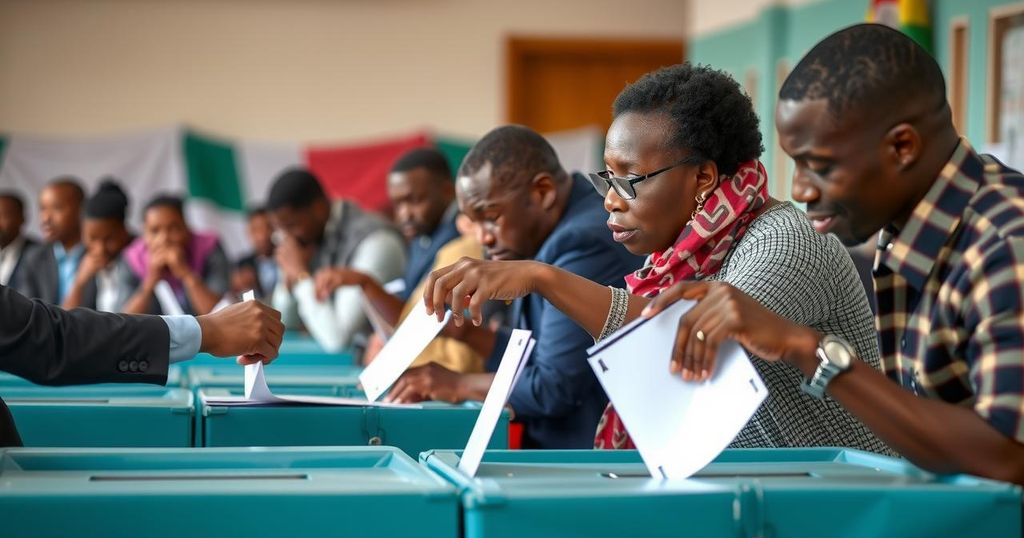Chad’s Controversial Parliamentary Elections: A Step Toward Democracy or a Flawed Process?

Chad is conducting its first parliamentary elections in 13 years amid an opposition boycott. Citizens are voting for a new parliament, provincial assemblies, and local councils, but low turnout and claims of pre-determined results overshadow the process. President Mahamat Idriss Deby Itno promotes the elections as a step toward democracy, while opposition parties express skepticism about their legitimacy. Allegations of ballot tampering and security concerns further complicate the electoral landscape.
Voting is currently taking place in Chad for the first parliamentary elections in 13 years, amid a boycott called by opposition parties. Citizens have the opportunity to elect a new parliament, provincial assemblies, and local councils in a nation grappling with poverty and political turmoil. Opposition figures have contested the legitimacy of the elections, alleging pre-determined outcomes, while the ruling administration, led by President Mahamat Idriss Deby Itno, asserts that this election is pivotal for transitioning from military governance to democratic rule. Reports from the capital N’Djamena indicate low voter turnout, with some attributing it to adverse weather conditions officially cited by election authorities.
The opposition has strongly urged the populace to abstain from participating in what they deem a sham election. President Deby, who rose to power following a military coup in 2021, has been actively encouraging voter participation, framing the day as ‘historic.’ Meanwhile, local communities express pressing needs for better living conditions and justice, particularly in light of climatic challenges affecting agricultural livelihoods. With allegations of ballot tampering and armed conflict in nearby regions affecting the political climate, significant attention is focused on the integrity and outcomes of these elections for Chad’s future.
Chad has faced political instability since the death of former President Idriss Deby in 2021, leading to the military’s assumption of power. This current election marks the first parliamentary vote in over a decade, intended to legitimize the existing government structure and signal a move towards democracy. The electoral process unfolds against the backdrop of economic challenges, armed group violence, and tension with international partners, including France. The opposition’s call for a boycott reflects deep-seated distrust in the electoral process, suggesting that many citizens feel disenfranchised and skeptical about potential changes in leadership following the elections.
The parliamentary elections in Chad signify a crucial moment for the nation following years of military rule. Despite government assertions of progress toward democracy, opposition parties have raised serious allegations regarding the legitimacy of the voting process. The combined factors of low turnout, calls for boycott, and reports of electoral irregularities underscore the challenges ahead for Chad as it navigates its political future. How these elections will shape the governance and stability of Chad remains to be seen, especially in the context of pressing socio-economic issues and ongoing security threats.
Original Source: www.aljazeera.com








